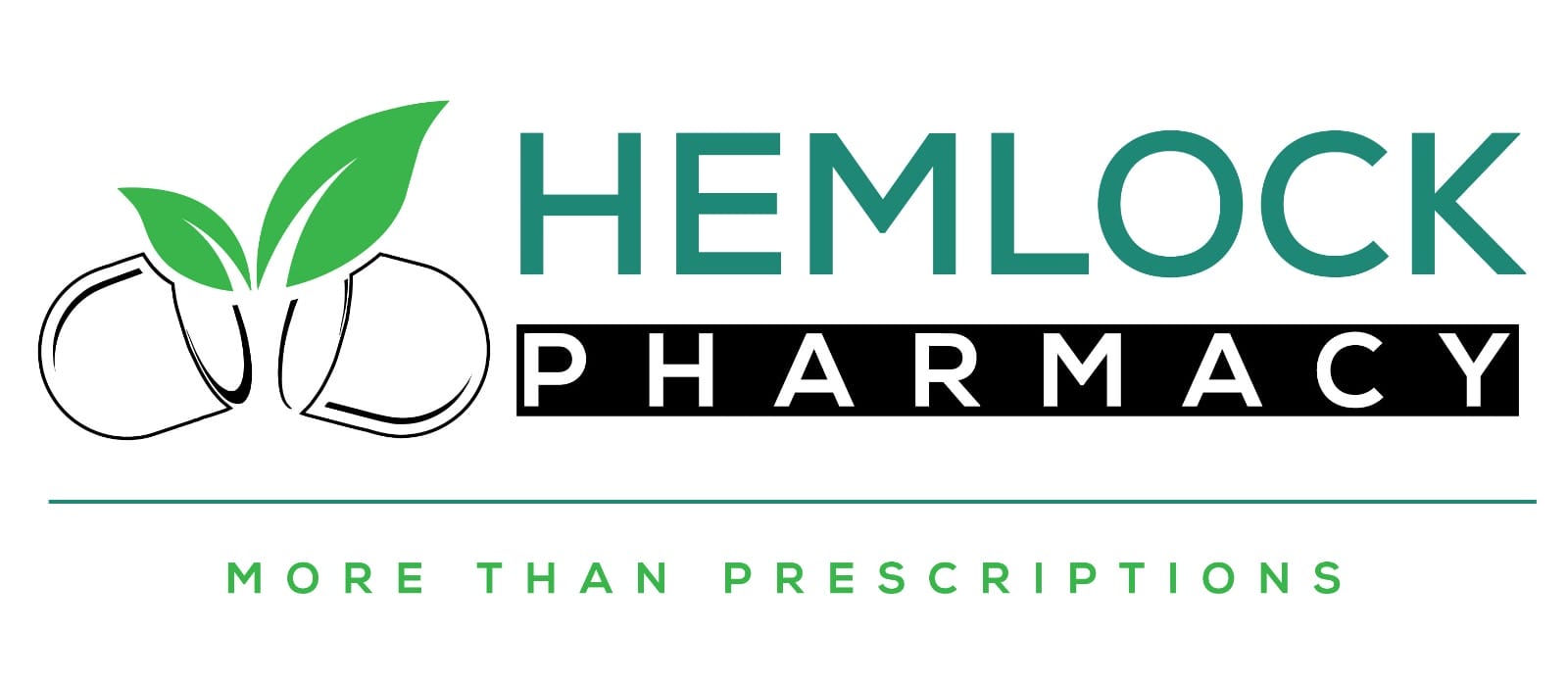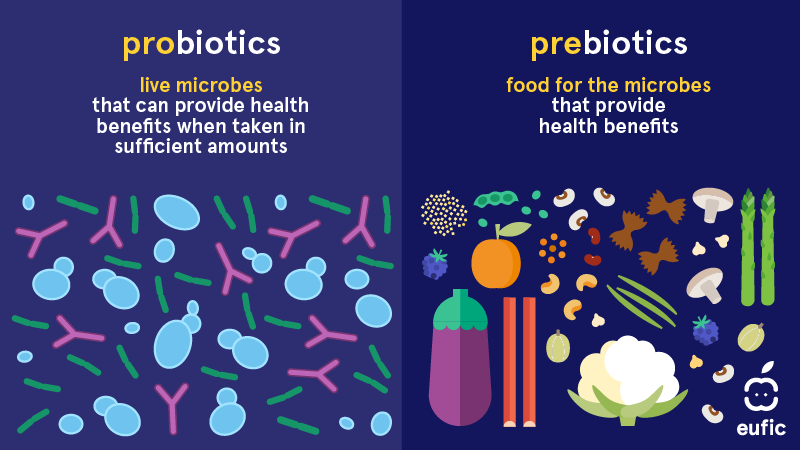Probiotics vs Prebiotics
Probiotics are live bacteria (microbes) and yeasts that have beneficial effects on your body. These microorganisms live with us and help support our bodily functions and health. They do so by maintaining or improving the “good” bacteria (normal microflora) in the body. Though some of these microorganisms aren’t useful to the human body (germs) and can be harmful. But the beneficial microbes, like probiotics, help to control the potentially harmful types.
Prebiotics are foods typically high-fiber foods that act as food for normal microflora.
What do probiotics do?
These health products contribute live, beneficial microorganisms to the populations within your gut and elsewhere, in order to strengthen those communities. An imbalance called ‘dysbiosis’ that usually happens in the gut due to a deficit of the microbes is normally treated by the probiotics and fecal microbiota transplants.
Dysbiosis presents as a wide range of digestive disturbance symptoms such as; diarrhea, cramping, constipation, bloating and indigestion. Some of the products that can be used to manage these symptoms includesupplements such as; ColoNormax EXTRA, Doflora Sachets and many more.
Research is ongoing into the relationship of the gut microflora to disease. The health benefits of currently available probiotics and prebiotics have not been conclusively proved.
However, side effects are rare, and most healthy adults can safely add foods that contain prebiotics and probiotics to their diets. Future research may lead to advanced probiotics with greater potential to improve health.
What do prebiotics do?
In 2016 the International Scientific Association for Probiotics and Prebiotics (ISAPP) produced the following definition of prebiotics: a substrate that is selectively used by a host microorganism to produce a health benefit. In 2021, The Global Prebiotic Association (GPA) defined a prebiotic as a product or ingredient that is utilized in the microbiota producing a health or performance benefit.
Dietary prebiotics are typically non-digestible fiber compounds that pass undigested through the upper part of the gastrointestinal tract and help growth or activity of advantageous bacteria in the colon by acting as substrates for them.
When the prebiotic concept was first introduced in 1995, the primary focus was on the effects that prebiotics confer on Bifidobacteria and Lactobacillus. In the recent years, the current prebiotic targets have expanded to a wider range of microbes, including Roseburia spp., Eubacterium spp., Akkermansia spp., Christensenella spp., Propionibacterium spp. and Faecalibacterium spp.
These bacteria have been highlighted as key probiotics and beneficial gut bacteria as they may have several beneficial effects on the host in terms of improving digestion (including but not limited to enhancing mineral absorption) and the effectiveness and intrinsic strength of the immune system.
Both Bifidobacteria and Lactobacillus have been shown to have differing prebiotic specificity and to selectively ferment prebiotic fiber based on the enzymes characteristic of the bacterial population. Thus, Lactobacilli prefer inulin and fructooligosaccharides, while Bifidobacteria display specificity for inulin, fructooligosaccharides, xylooligosaccharides and galactooligosaccharides.
Studies have also shown that prebiotics, besides helping growth of beneficial gut bacteria, can also inhibit detrimental and potentially pathogenic microbes in the gut, such as clostridia.
If you’re taking probiotics for a specific purpose, and the probiotics are working, you should be able to tell that you’re feeling better. For example, if you’re taking them to help relieve constipation or diarrhea, you should notice your poops becoming more regulated over time.
Many probiotics produce a by-product called short-chain fatty acids in your gut. These by-products have many benefits to your gut health, but a sudden influx of them could cause temporary diarrhea. Other probiotics produce gases in your gut as by-products. If you suddenly have more of them than usual, you might notice increased bloating and gas during digestion. These symptoms should resolve within a few days.
Different probiotic products may help improve your skin health, your vaginal health or your gut health and build up your immunity in general.


